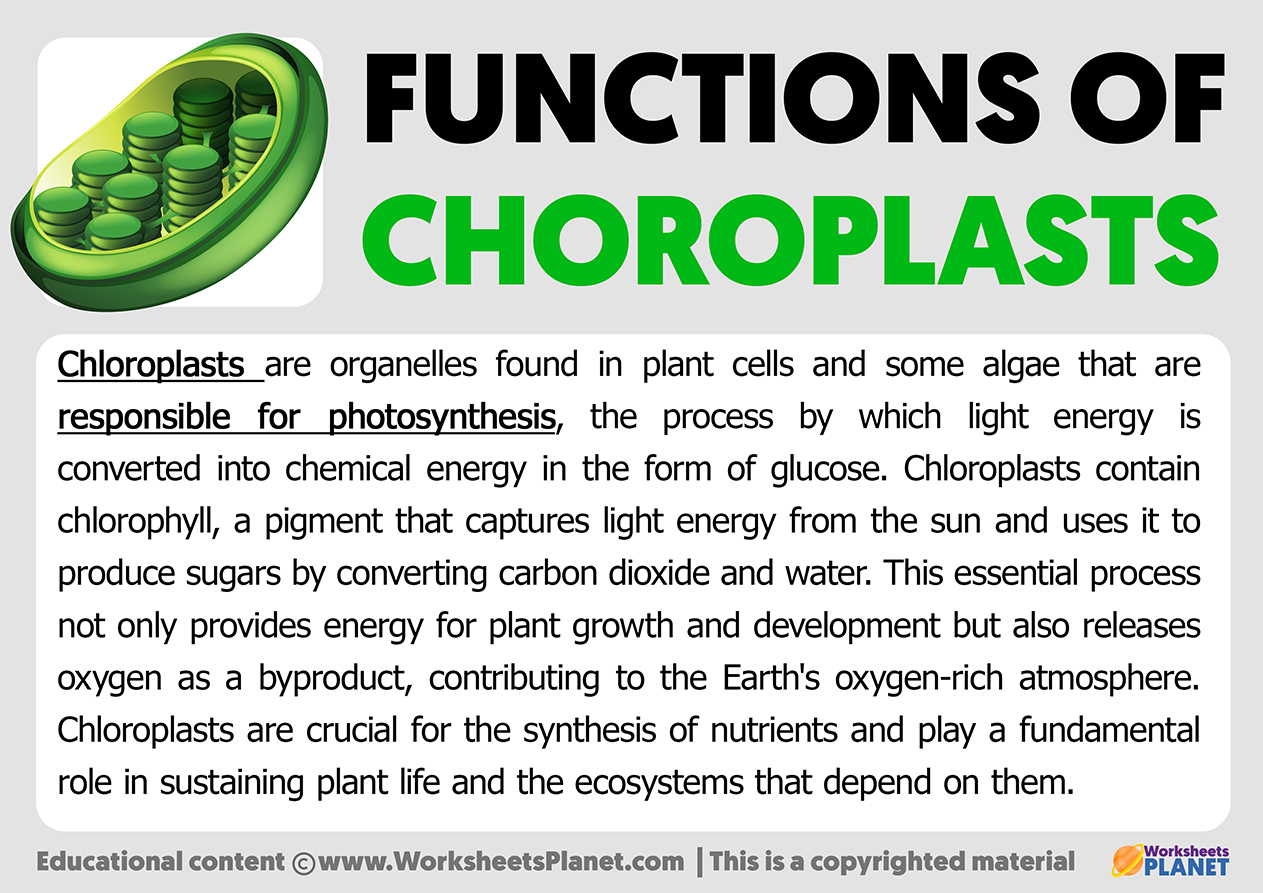Chloroplasts are organelles found in plant cells and some algae that are responsible for photosynthesis, the process by which light energy is converted into chemical energy in the form of glucose.

Chloroplasts contain chlorophyll, a pigment that captures light energy from the sun and uses it to produce sugars by converting carbon dioxide and water.
This essential process not only provides energy for plant growth and development but also releases oxygen as a byproduct, contributing to the Earth’s oxygen-rich atmosphere. Chloroplasts are crucial for the synthesis of nutrients and play a fundamental role in sustaining plant life and the ecosystems that depend on them.

